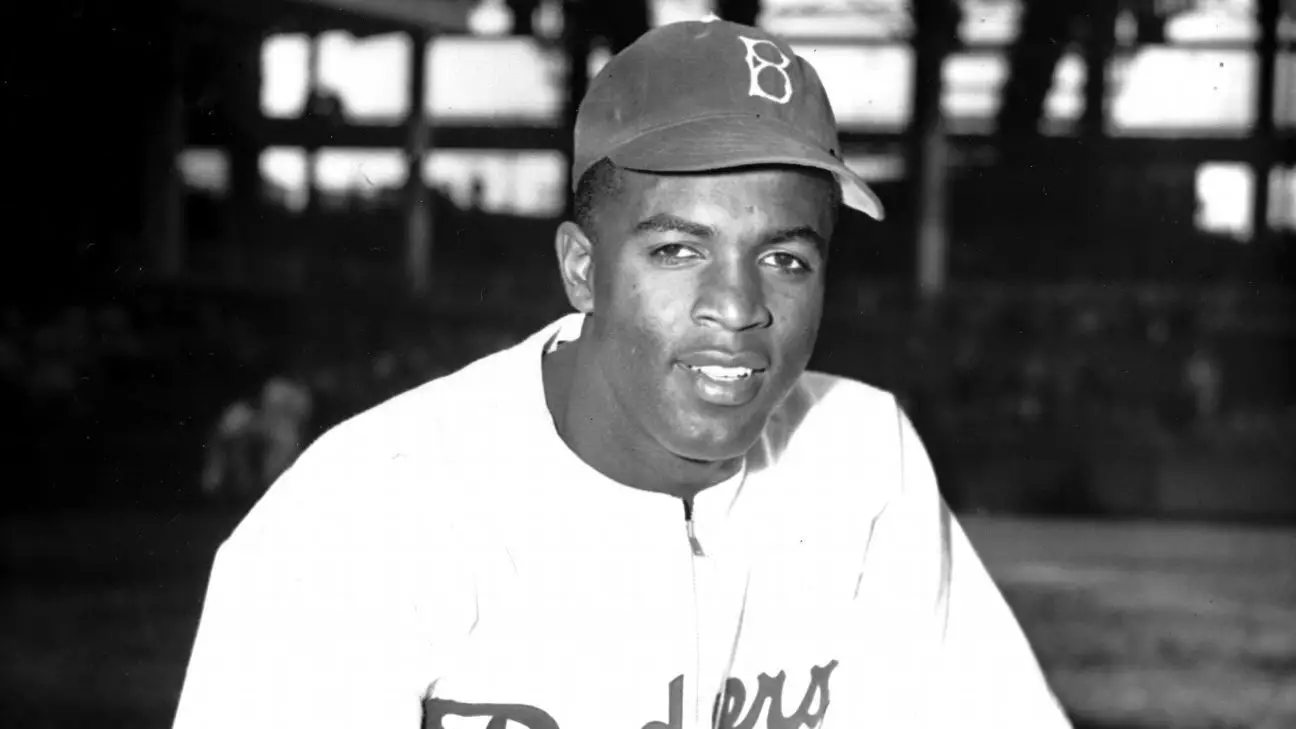Jackie Robinson is a name synonymous with courage, breaking barriers, and standing up against prejudice. He is revered not only for his remarkable contributions to Major League Baseball (MLB) but also for his courageous service as a second lieutenant in the U.S. Army during World War II. His story transcends the realm of sports, embodying the ongoing struggle for equality and justice in America. Robinson’s military service, often overshadowed by his illustrious baseball career, is a testament to his unwavering commitment to serve his country, even in the face of immense personal challenges.
In recent discussions, Robinson’s legacy has come under scrutiny following the Pentagon’s controversial decision to temporarily remove articles honoring him from their digital platforms. The directive to refresh content, with explicit emphasis on removing references to Diversity, Equity, and Inclusion (DEI), raises questions about how history is honored and remembered. Despite the Pentagon’s explanations, the act of removing content related to influential figures like Robinson suggests an alarming narrative: the attempt to erase acknowledgment of the complex intersections of race, service, and heroism in American history.
The Pentagon’s Contentious Directive
The Department of Defense’s decision, prompted by a memo advocating for a “digital content refresh,” seems to stem from a broader anti-DEI sentiment. The implications of this purge go beyond the mere removal of articles; they represent a disregard for the historical context that shaped the very values of diversity and inclusion that Robinson stood for. Pentagon press secretary John Ullyot’s statements indicate a problematic view that seemingly conflates recognition of an individual’s racial background with division among service members. Such an ideology overlooks the profound sacrifices of diverse groups historically and in contemporary contexts.
In upholding a detached narrative of patriotism devoid of racial context, the Defense Department fails to recognize that service members like Robinson paved the way for future generations by challenging institutional racism. Robinson’s court-martial for refusing to move to the back of an Army bus stands as a powerful symbol of resistance—a reflection of the greater civil rights struggles that were burgeoning during his time. Stripping this context from his legacy does a disservice not only to Robinson’s memory but also to the ongoing fight for equality within the military and broader society.
A Celebration of Resilience
Jackie Robinson’s achievements both on and off the field are a constant reminder that the fight for equality is far from over. He faced numerous hardships, yet his indomitable spirit shone through. As the first African American to play in the MLB, Robinson forever changed the landscape of professional sports, demonstrating that talent and determination could prevail against prejudice. His accolades, including the National League MVP and his first-ballot induction into the Baseball Hall of Fame, exemplify his extraordinary talent and resilience.
The ongoing commemoration of Jackie Robinson Day every April 15 serves as a poignant reminder of the progress made and the challenges that still lie ahead. His legacy is not merely about baseball; it is about the effort to create a more equitable society. The fact that MLB players don jerseys with his number 42 each year symbolizes a commitment to embracing the values of respect, equality, and courage that Robinson exemplified.
The recent attempts to minimize his contributions highlight an important ongoing dialogue about how history is recorded. What defines a hero is not simply their achievements but how they confront adversity. Robinson stood as a figure of change, refusing to adhere to societal norms that would dictate where he could sit or how he should conduct himself. This steadfastness serves as a template for future generations to advocate for their rights and the rights of others.
The Personal Connection
For those who idolize Robinson, his legacy extends well beyond the history books. His wife, Rachel Robinson, at 102 years old, continues to be a beacon of strength, sharing stories and lessons that inspire countless individuals. Her presence at MLB games encapsulates the enduring impact of both their lives and the ongoing mission to honor his contributions meaningfully.
Robinson’s story, woven into America’s tapestry of heroism, should not be reduced to mere statistics or erased under bureaucratic policies. As individuals, we must advocate for authentic representations of our history, emphasizing the diverse narratives that contribute to understanding the complexities of our past. In doing so, we uplift not only Jackie Robinson’s legacy but the very foundations of justice and equality that he fought to instill in American society.
In reflecting on this examination, it’s crucial to understand that the presence of diversity in discourse, remembrance, and history strengthens our collective resilience. Jackie Robinson didn’t just break the color barrier; he forged a path toward an inclusive society. His story is a poignant reminder that progress requires accountability and acknowledgment, and it is our responsibility to ensure that such legacies are cherished and preserved.


Napsat komentář